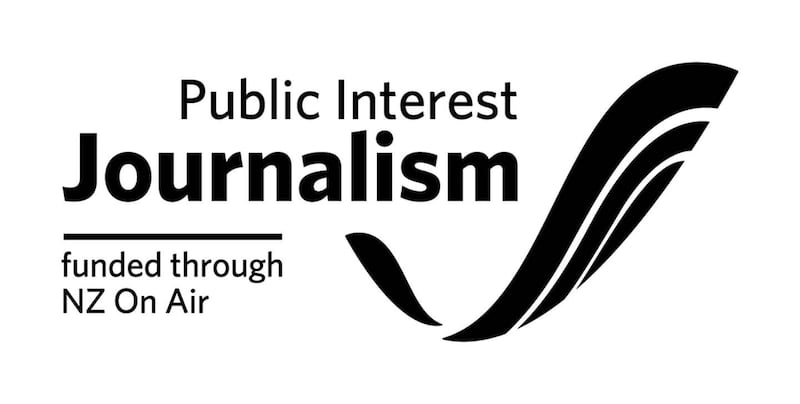Photo/paeātea.nz
One of the largest advertising companies in the world is teaming up with a Māori-owned studio to bring Māori stories to nationwide billboards in a landmark partnership.
JCDecaux NZ, the New Zealand subsidiary of a French-owned company that operates in more than 80 countries, is collaborating with Haumi for Pae Ātea, showcasing Māori culture on billboards across Aotearoa.
Karl Johnstone (Te Aitanga a Mahaki, Rongowhakaata, Ngāi Tāmanuhiri), who founded Haumi, says while billboards tend to be used to advertise products, they can also be used to create conversations on te ao Māori.
"It was a kind of a no-brainer really. If we could create a conversation, if nothing else in the public space, then help people to understand whakaaro Māori, whether that's in a written form, design, social histories, those things that help us naturalise and state of our place in this whenua, that's sort of where Pae Ātea came from."
The idea came after Johnstone and JCDecaux NZ head, Mike Watkins had a chance encounter over lunch. Watkins says after talking with Johnstone he left with a new understanding of the Māori world.
"I walked away feeling two things. One, incredibly inspired by him. But also, there was a level of guilt of having the wrong perceptions and misconceptions about Māori tradition, culture and roles in New Zealand, basically, my whole life," Watkins says.
'More important than short-term cash'
It was from there he had the idea to use JCD's network of billboards to share te ao Māori with the public. Pae Ātea will see Haumi given space on JCDecaux's outdoor media spaces for at least two years.
The two companies would then share the costs of putting together displays, or Tuku, as Johnstone calls them. The increased awareness of things Māori, Watkins says, is bigger than any profits that could have been made by selling the advertising space to commercial companies.
"With where New Zealand is at the moment in terms of cultural awareness and acceptance, getting these stories across and awareness across is much more important than short-term cash.
"We're taking away revenue opportunities for us by not selling this media space but giving it to the Pae Ātea platform. But some things in life are more important to me, which is really strange coming from an advertising background where everything's about money."
The first project began with a Matariki-themed display in June. It is coming to the end of its second tuku, recognising Apihai Te Kawau gifting whenua for the establishment of Auckland City in 1840. Johnstone says the intention is to subtly influence people's thoughts about the history of Aotearoa.
Auckland's whakapapa
"We will continue to broker relationships with iwi mana whenua around those spaces to tell pūrākau. When we look at the Tuku Whenua and the kōrero with Apihai Te Kawau and the birth of Auckland, that was about ultimately trying to strengthen everybody's relationship to this urban environment, which is Auckland. It has a history, it has a whakapapa.
"It's really important for people's sense of connection and place to understand their history. We all know that New Zealand hasn't been great at storytelling in the education system, our history."
While it was a chance encounter that brought the pair together, Johnstone says he believes there were bigger forces involved.
"I don't really believe in that. I believe that if you are tika, and you try your best to be pono, then things happen and open and reveal, and align. I'm really encouraged by the shifting of values.
'Good for the world'
"The government will always be led by a compliance perspective but the private sector is led by an opportunity perspective. They see the beauty of our mātauranga, they see the beauty of our whakaaro. And it's that old cliche. Ultimately what's good for Māori is good for the world.
"I think that the private sector is where we're going to see our greatest opportunities moving forward from a cultural development perspective. if we waited around for the Crown, and exist as a reflection of the aspirations of the Crown, we're not going to get there.
"So for me, if we're going to talk self-determination we have to do it, and we have to put our money where our mouths are, and we actually have to take the risks, and be prepared to get it wrong."


